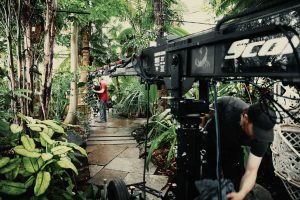A Win-Win For Producers And Industry Stakeholders
(Click here for industry media coverage and a summary. Continue reading for in-depth interviews with the participants.)
The sharing of local industry knowledge is at the very foundation of PSN-Production Service Network. It is a spirit that drives PSN collaboration with film industry organizations including the Production Guild of Great Britain (PGGB), Producers Guild of America (PGA), and the Association of Film Commissioners International (AFCI). Through PSN outreach, our exclusively vetted service company Partners enjoy opportunities to build the trust with filmmakers that is fundamental to future collaborations filmed abroad.
Engaging Filmmakers With The Travel Industry
PSN set out to host the FAM trip to Spain with a broad range of industry stakeholders, particularly leaders of the travel industry. During the drastically hindered travel of pandemic times, providers of premium transport and accommodations found a lifeline in the “essential” nature of film and TV production reliant on their services. “It’s crucial,” said Alex Boden, former Chair of PGGB and producer of titles including Tokyo Vice and Sense 8. “It means that they’ll be able to look after us better because they know more about the people they’re looking after. What we do as producers is unique. There’s no one quite like our industry. No one who needs to pivot at short notice like we do sometimes. There’s no one that needs to come in with the volume that we need to come in with at times. You know, suddenly needing hotel rooms for 300 people plus charter flights. Not everyone is doing that so the more we can establish those partnerships early, the better.”
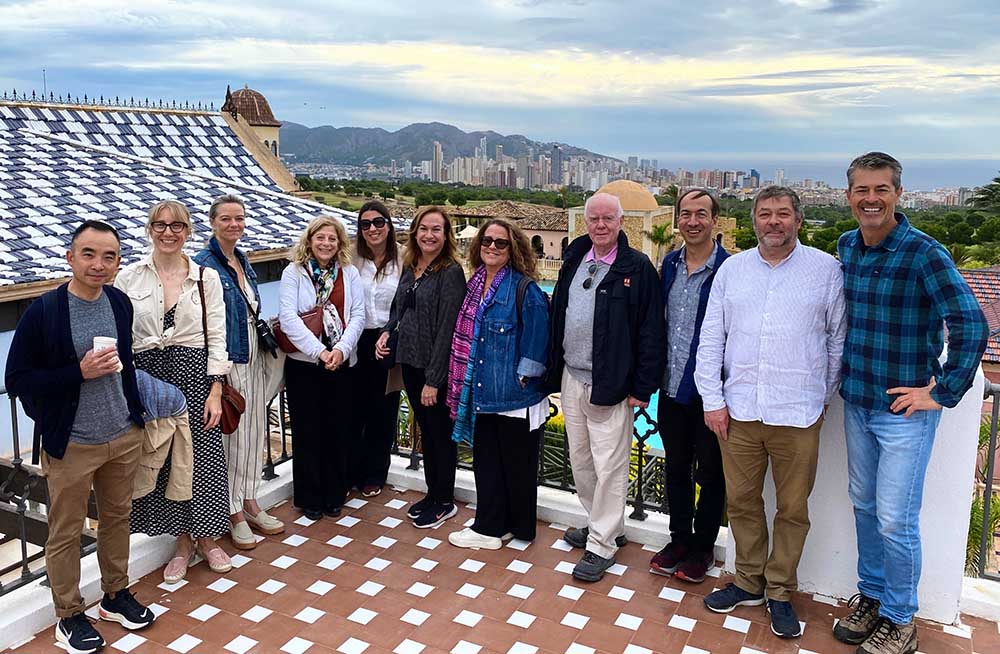
“I’m very grateful for each attendee’s willingness to share their experience and expertise,” shared Lisa Harwood, Account Manager for United Airlines Entertainment Team. “The networking opportunity and sharing of knowledge across industries were invaluable. They help the United team gain insights related to logistics and the location selection process. The trip also afforded us an opportunity to expose existing and new customers to United’s International Polaris Business Class travel experience.”
“I didn’t know that United Airlines had an entertainment division,” acknowledged Walden SVP of Production, Cher Hawrysh. “We’re going to sign a production company agreement with United and take advantage of what their offerings are. Definitely beneficial.”
The Meliá hotel franchise hosted filmmakers in the Mediterranean cities of Valencia, Benidorm, and Alicante. Carmen Lerma, MICE Account Manager at Meliá in Eastern Spain recognized that ” this FAM trip was a great opportunity to develop new business with the specialized sector that is filmmaking. We place a high value on demonstrating our capacity to house an entire production team on site. And we’re elated to share a firsthand experience for the film producers from US and UK to enjoy the overnight stays and hospitality of our choice properties.”
HBO (Max) Production VP, Holly Peterman said “I’d only stayed in one Meliá, and now I have a different taste of the different styles of Meliá hotels.”
“It’s always great to go and see hotels that you haven’t spent time at before,” surmises Mark Hubbard, co-producer of the Downtown Abbey and Dowtown Abbey, A New Era feature films. “You get a good sense of the quality across the whole chain.”
“We would like to thank PSN very much for bringing top-tier filmmakers to stay with us,” said Bárbara Ramallo, the Sales Manager at JW Marriott who orchestrated an evening tour with exquisite tapas at the Santo Mauro, a Luxury Collection Hotel and a three-night stay in a premiere downtown hotel property. “It was absolutely incredible to give these talented producers the opportunity to experience our newly opened Madrid hotel firsthand.”
“I would bring Morgan here.” concluded Kelly Mendelsohn, EVP of Production at Revelations Entertainment, the production company owned by Morgan Freeman. “That’s another part of working with celebrities. It’s comfortable, it’s safe. I can see him in the hotels and restaurants.”
Meeting Film Commissioners
“The coordination was great,” continued Mendelsohn. “Meeting the different film commissions, getting a lot of business cards, putting a face and a name together, knowing that there is somebody that I can call if I have any questions.”
“It’s really smart. You’re taking it down to another level,” observed Debbie Liebling, former studio executive and producer of comedy titles like South Park and Borat, Cultural Learnings of America for Make Benefit Glorious Nation of Kazakhstan. “Instead of just going, ‘here are the places you can shoot, call us if you’re interested’, no, these are the people, and now that you know them, you know whom to call, and you know how it works here, and how it works there.”
“It’s a shortcut,” concluded Nigel Wooll, producer of features including Tár, and G.I. Jane. “Now we know whom to approach. There’s a sort of a personal, 1 to 1. They know me, I know them. They know what I’m looking for. It is so useful to have that sort of personal relationship with the film commission people.”
Time To Delve Into Details With The Production Service Of PSN
“It’s helpful to spend time with your service company partner. To connect over multiple days,” remarks Nicole Beaudoin, Physical Production Producer at Ubisoft. “That’s obviously incredibly helpful for being able to feel like, ‘great, I can pick up the phone or send an email.” Obviously, we’ve been provided with a wealth of information, but for follow-up questions or a very specific project that I wasn’t thinking about then but now I’m thinking, ‘hey, is there a bridge?” you know, whatever the specific project is. That’s always helpful.”
“You’re used to the questions and challenges that we international producers face,” notes Boden. “Having producers on the ground who live in the country, live in the city, and can tell us firsthand what it’s like to film in their country. That’s an added value as well.”
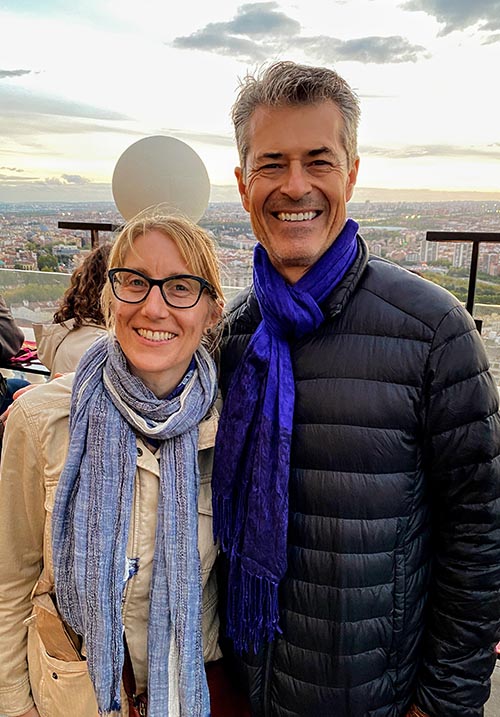
“It’s been great to be introduced to individuals here who have experience through PSN. The relationships with them are helpful,” said Searchlight Pictures VP of Production, Joe Malloch. “To have trusted partners who can answer a lot of the questions. Being introduced to you and the network, I would now have the opportunity to reach out with questions about various territories. Understanding your approach, and what we’ve seen here, and applying that to the other locations is a good guide.”
Hubbard concludes, “I always say to other producers that the key decision you make on a foreign film is the service company. That defines how everything on the film will go, so it’s the crucial decision. Knowing people at PSN that have a wide range of knowledge across the world of those service companies is a very useful tool to make use of.”
Producer Powwow
“From beginning to end, this is a collaboration,” underlined Lisa Cochran, Warner Bros. Television SVP of Production. “I don’t think that any of us can come here, keep our thoughts to ourselves, and then go back and represent what’s here. We need to engage.”
“It’s always good to meet the group as itself because you can exchange notes with them,” remarks Wooll. “See what they like, and what I like, and to discuss how you sort problems out.”
“It’s a great, deep dive to be able to go beyond just a general networking of your peers and colleagues,” said Beaudoin. “To have time to connect with people on a deeper level, to have a fun, shared experience together.”
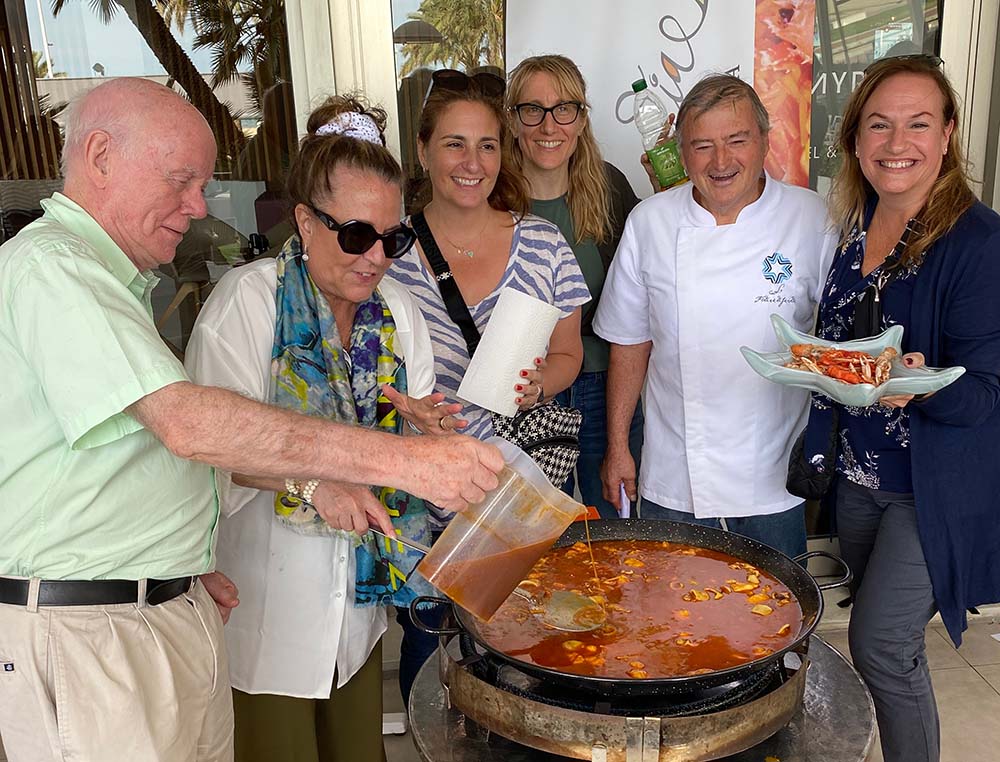
“I’ve enjoyed being with people that I’ve never met before to hear their perspective,” continued Cochran. “They’re looking at their projects with their eyes, and I haven’t had some of that perspective so I’m listening, and I’m thinking. There’s a lot of take away. I feel that as a group, and not a large group, a group like this has afforded us all to hear each other. We all have different background. We have different sets of experience. I think that the collective group shares that information, and I think if you’re willing to listen, and you chat and talk, it helps that it’s a fun group, a good group and that the personalities are great.”
“It also makes you a better producer. For the information and for broadening of perspectives,” concludes Boden. “There’s an extra string to your bow. If you’re trying to shoehorn everything into the world that you know, and in terms of competition, there are other producers that have got many more options, they’re going to do a better job. I encourage other UK and US producers to come out of their countries because the more that they understand that things work differently in other countries, and how they work specifically, rather than just being phased by it, the better. Just spending time in the country is a step in the right direction. So I very proactively encourage people to do FAM trips for that.”
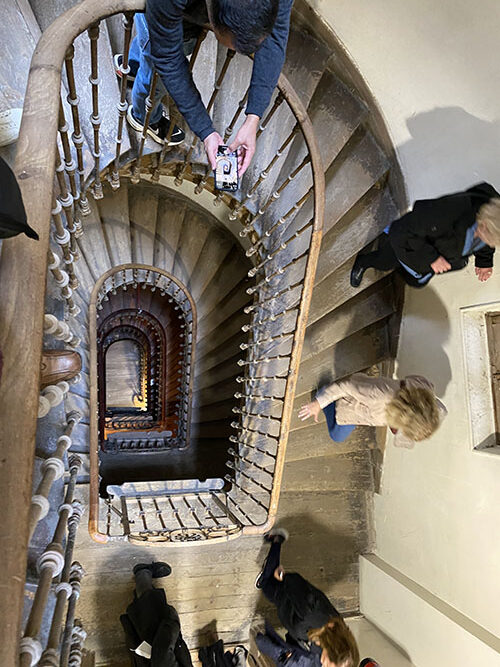
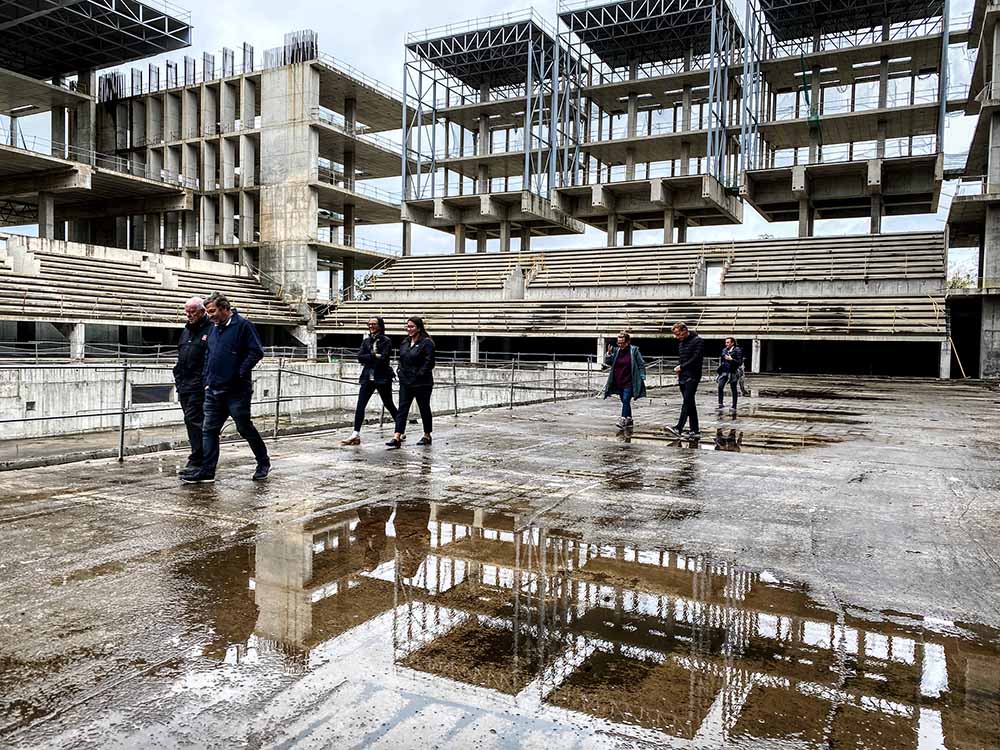
This FAM(iliarisation) Trip Is No Holiday
“You’re much more focused on the how to of all of it rather than just coming on a vacation,” said Melvin Mar, Producers Guild of America VP of Television and producer of titles like American Born Chinese as well as Jumangi: Welcome To The Jungle and Jumangi: The Next Level. “Everything is more focused on how to use this place in two ways. Making your show here, you know, seeing if it can double for something else, or like, the inspiration of a new idea that is specific to here.”
“Money is such a challenge in the US,” remarked Liebling. “Any opportunity to see the world, to know that I have options elsewhere from a production standpoint, to be able to see them and really understand them. I had been to Madrid as a tourist, but I now feel like I know the city much better from its urban center to its tunnels, surrounding ring roads, and outlying sprawl. How would any tourist ever know that there was a tunnel, or an abandoned aquatic center, or multiple stages available to them? So, for me it was really helpful for when I’d want to come shoot here.”
“There are many more benefits as well, white wine and paella included,” jibed Boden. “But having those different options all in one go means that you are able to do something quite efficiently because you’re getting a very fast download of an area of the world. That’s invaluable. It would take a lot more time, phoning around, asking people what it was like working on the show they worked on and piecing it together in a less hands-on way.”
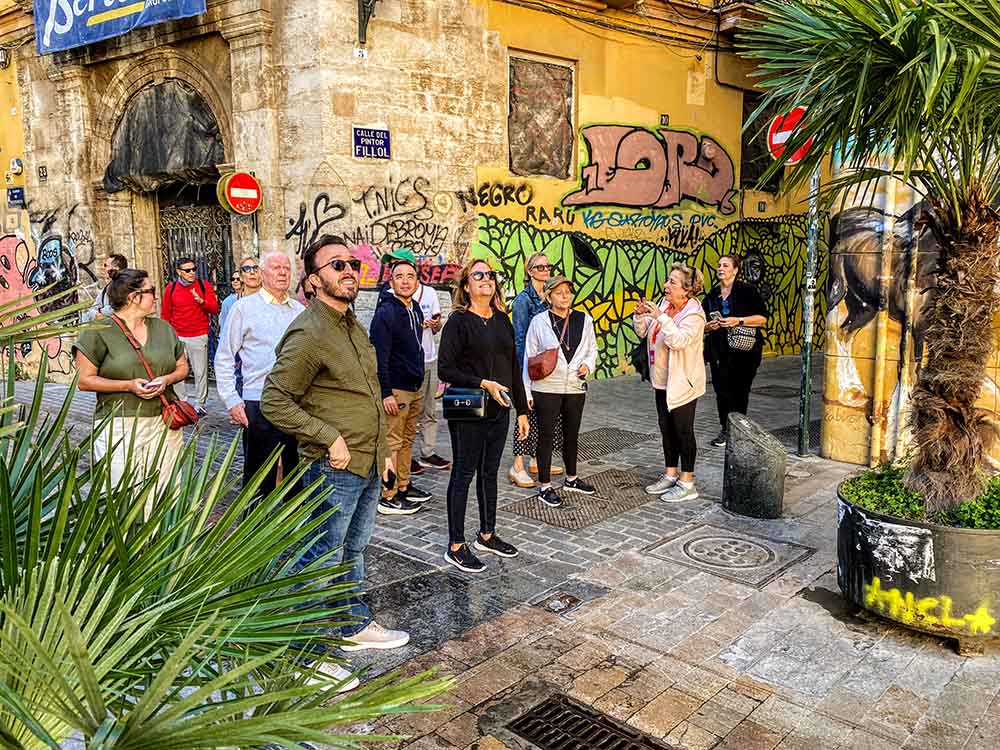
“As heads of production, we’re tasked with coming up with a production plan that checks both, creative and financial,” noted Annapurna EVP of Production, Shayne Fiske. “So, for me, going on a FAM tour is an opportunity to go out and find, usually, places that could serve for multiple locations that aren’t necessarily the actual location we’re looking at. A lot rides on my shoulders if I choose this territory, and I choose this service company, and I choose this line producer. So, when I go back about Spain, it’s like, ‘here’s the things I know, here’s what could be hard, here’s what could be easy so that people are going in mindful that this isn’t like shooting across the street.”
“As production executives, we have to be accountable and say ‘yes, you can do this’,” affirmed Mendelsohn. “So, any more added information would be great so I can go back and say, oh, crew’s not inexpensive, but what I’ve learned is you have multiple locations, you have deep crews, you can make deals with hotels, equipment is pulled from these cities. Everyone is accustomed to traveling from the coast. You don’t have to pay them as much per diem.”
Hawrysh concluded, “Now that I’ve been here, I feel so much more confident to push for a location.”
What You See Online Is Only Part Of What You Get On Location
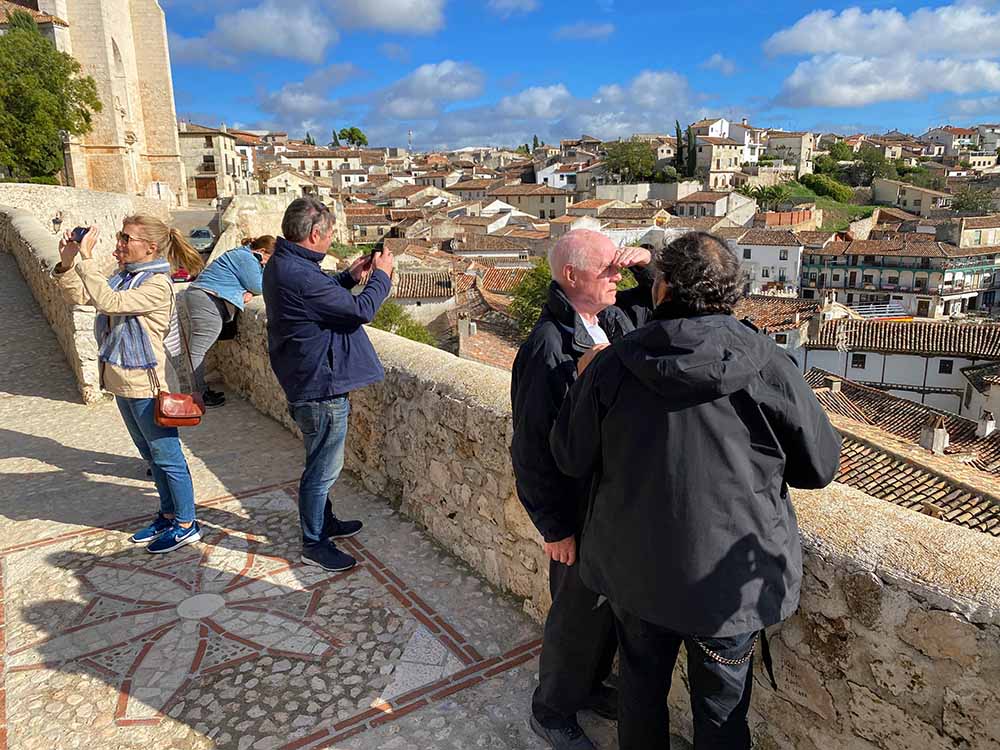
“I mean this respectfully: every writer is a location manager because they have Google on their computers,” cautioned Cochran. “They saw the picture, but they never saw what was on the other side or next to it. It was just a gorgeous location. And you don’t want to burst their bubble. You want to encourage what they want. But you also want to say to them, ‘you’re actually not going to be that happy because the totality of that place may not be what you think.’”
Cochran tapped into PSN´s local knowledge to pivot creatives to more film friendly destinations during the scripting of season 1 and season 2 of HBO’s The Flight Attendant. “The value is that we’re all busy, and none of us has just one project. So, to be able to reach out and be able to get that first take – and then because that doesn’t work, I’m not spending time with one local producer then, OK now I have to go to the next local producer – I just go to PSN and say, ‘what are my options? Where do you see it? Where have you been that you think you can put this together? Then I can move onto something else while you formulate an answer. And, at the same time, I think the creatives look back at me and say, OK, it isn’t just my opinion. In other words, I went to a source, and it’s not just because I don’t want them to go to X, Y, or Z.”
“We’re given a condensed amount of time to get them on the right track. If I can shoot you an email and say, ‘oh God, they’re thinking these two places and your response is no incentive, no equipment, no crew base, I can move them off that fairly quickly. It doesn’t mean we’re moving away from the vision, but they just have to change the page on their computer.”
“We work really hard in production to not be the “NO” person,” continued Cochran. “I know most production executives want to be collaborators, so if I can get them what they want, maybe it’s not where they want it, I think that’s a success. Having the advance information and exposure is invaluable because the window in television once something lands is very brief,”
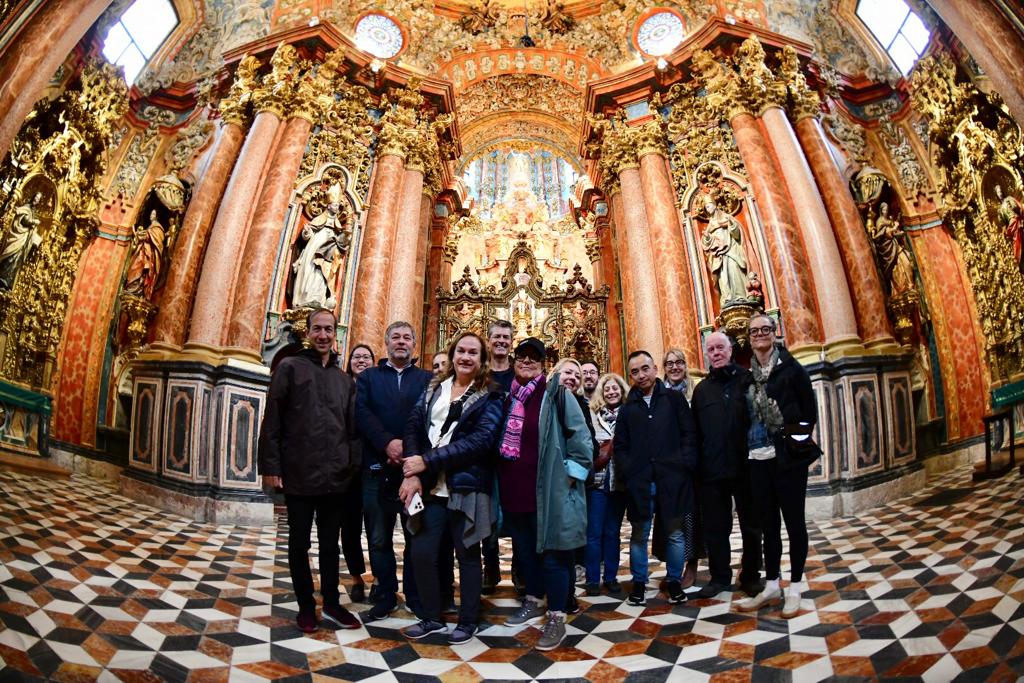
“It’s this sort of evolving world that we’re in that is not only finding places that look unique for other locations but also friendly film locations outside of the country,” elaborates Malloch. “Looking at incentives and hearing so much about Spain, and now being here and seeing what it is, it’s a great place to be.”
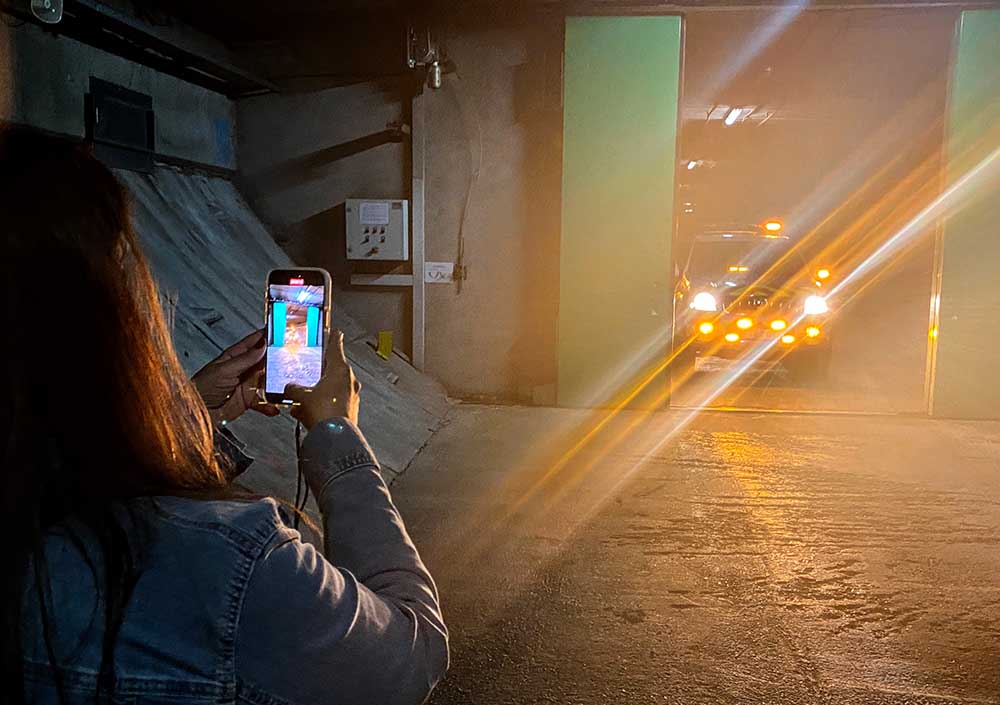
Despite having filmed in Spain multiple times, Wooll was genuinely surprised more than once in Madrid. “It was very, very interesting to see the Content City studios. That’s very new. I didn’t think Madrid had a studio. Strangely, one of the most important things we’ve seen is the tunnel,” he quipped in reference to Madrid’s underground where vast galleys can be blocked off for filming. “That could be such an invaluable location. I don’t know anywhere in the world that you can do that.”
“The kind of locations you can find in Valencia are an extra draw,” surmised Boden. “From its historical monasteries to amazing new buildings at the City of Arts and Sciences that are all very filmable. The variety offered in a small space of time here is really important.”
The Valencia regional city of Alicante also boasts newly reopened studios and a water tank, which the CEO of Ciudad de la Luz, Fermin Crespo, enjoyed touring with the dozen US and UK producers of the PSN Filmmaker FAM trip to Spain. He said there’s no better way to put his seaside filming facilities on the world map than by receiving top-tier film industry professionals who work with leading production companies and streamers to “learn firsthand about the dimensions and possibilities of CDLL – the only ones in Europe that allow indoor, outdoor, and aquatic filming in the same area.”
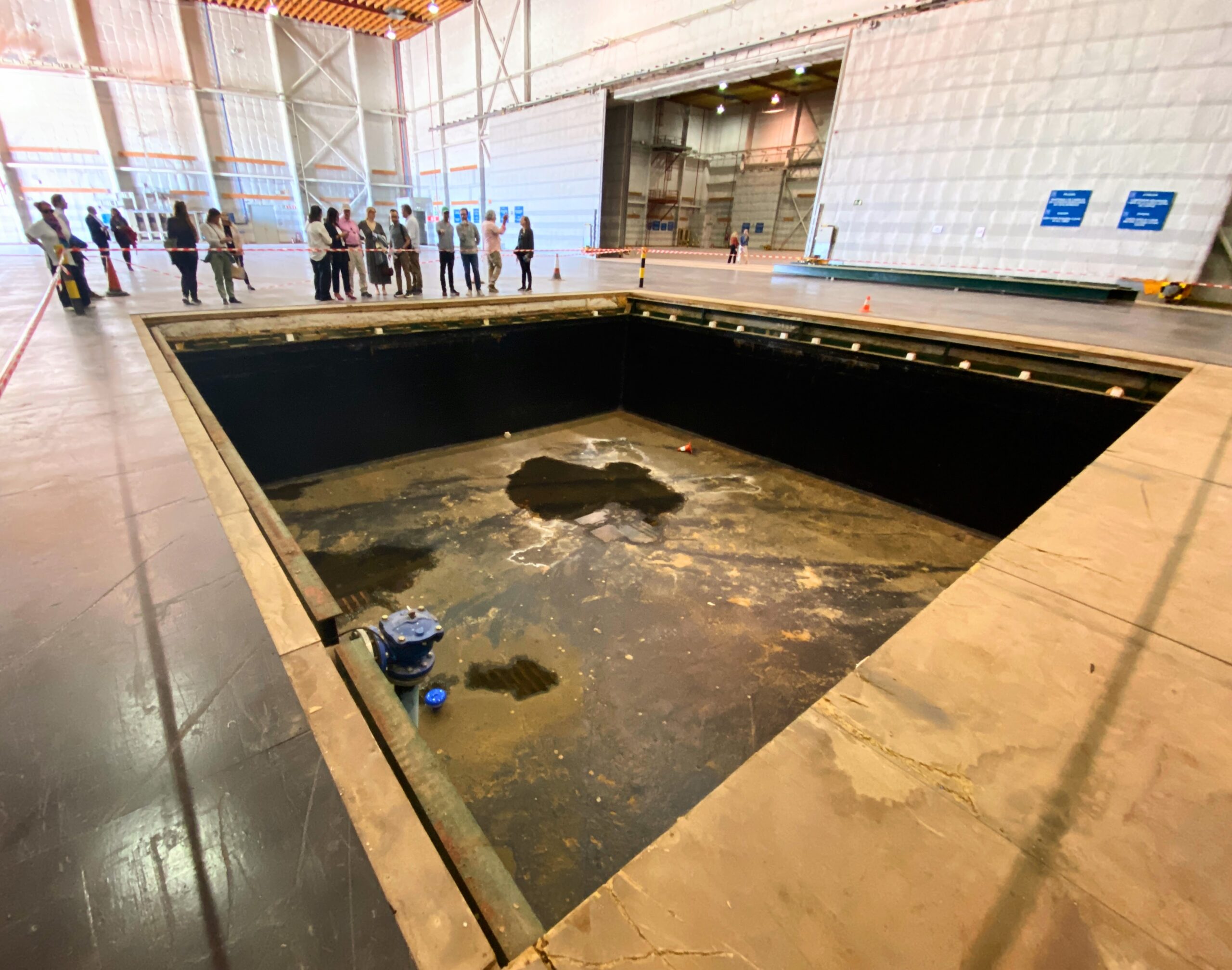
“The locations themselves may not change, but consider the infrastructure, local understanding of the film industry, and specifically the US approach to the film industry,” Fiske pointed out. “If, for example, a film region has hosted Game of Thrones, that tells me that they know how to handle big production, they know how to handle a US/UK approach to filmmaking that may be a little more arduous than some of the smaller local content. So, I get the feeling that if I come here, I’ll be taken care of.”
Familiarity Spawns Future Film & TV Development
“I have two studios that have suggested Spain,” revealed Mendelsohn. “We pushed back because I had no information about Spain, so we budgeted for New Mexico. Now, being here and seeing the infrastructure and what’s available, I can confidently say, ‘yes, we can do this.” It’s very beneficial to have boots-on-the-ground experience.”
“We’ve been looking at a couple of international projects where Spain has come up, so this is the perfect timing,” offered Boden. “You’re ultimately going to be looking at scripts with fresh eyes and thinking about the places that you know, and Spain is right at the top of that list. I honestly couldn’t have spoken with authority previously.”
“I have a fondness for Spain,” said Mar. “I thought it would be really cool to see it and think about it in a production capacity as well as a creative capacity. A place inspires you. It is a nugget of something that when you go home, or as your projects evolve, it’s something that you can build off of. Producing is putting things together, and I always look at it like an ingredient. You’ve come to Spain. You’ve come to many parts of Spain. You know it, you’ve experienced it, you know how it can help, and how it can be a part of something.”
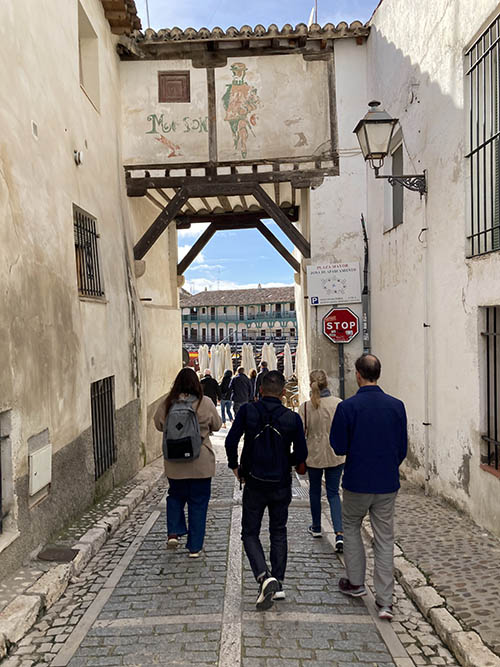
“We’re oftentimes chasing incentives, to find the best place creatively to make a project in the most cost- effective way,” noted Hawrysh. “I feel like I have much more of an ability to project based on my experience being here and finding out.”
“I think Spain has now got a fair incentive,” Wooll surmised. “The 25% [minimum on the mainland] is good, especially for bigger budget films.”
Malloch was impressed enough to advocate for Spain. “Having experienced the location, I’ll read other people’s scripts and ask ‘oh, did you consider Spain?
“I see Spain in a very different light,” concluded Peterman. “What I like is that I’m going back and presenting this trip to over a hundred production people at HBO next week. We have so many productions going on that, you know, someone may have something up their sleeve, like ‘oh, that’s interesting’, and I can then share all my files with them.”
“People know that I’m here so it’s something that we’ll talk about together because we always share information,” explains Boden. “Just like I’ll call people up to ask about their experiences, they’ll call me as well. We trade a lot. Sometimes it’s just a quick 5-minute call to say this is the download. Thumbs up or thumbs down. And Spain is definitely a thumbs up.”
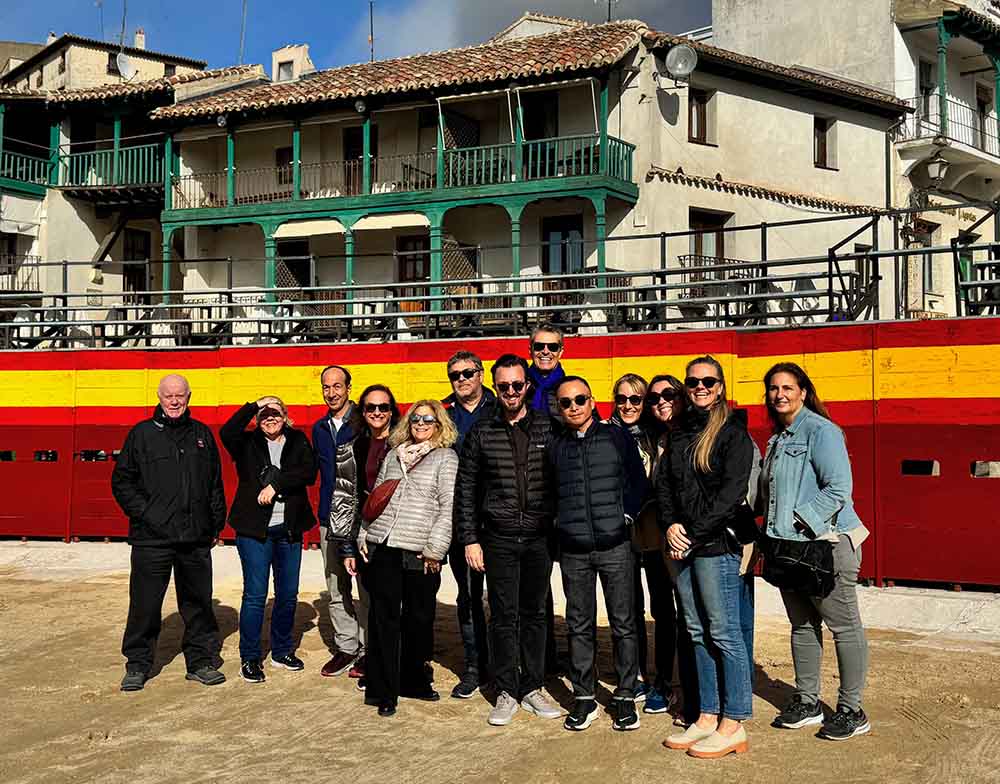
Michael Moffett
Production work on commercial, long form, and factual shoots for clients from around the world during three decades is at the core of Michael’s experience. Highlights from his years managing production service budgets of all sizes for feature film, sport celebrity shoots, primetime TV programming for all major US & UK channels, and events as diverse as motocross and a papal visit.
This Los Angeles native with a traveler’s soul started his own production service company overseas to share with fellow production professionals the wonders of shooting film, photo, and video projects across Spain and Portugal – the sunniest corner of Europe. Michael is as quick with a smile as he is committed to no-nonsense production workflow delivering cost-effective, quality results you can see in frame. He founded the Production Service Network in 2014 to accomplish that worldwide. He manages PSN from his base in Madrid in Spain, Madeira in Portugal, or most anywhere he has an Internet connection.

